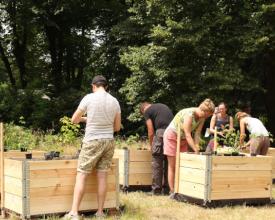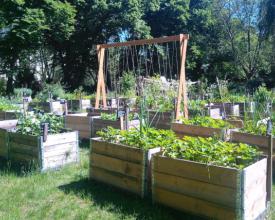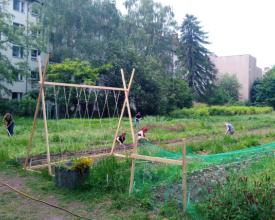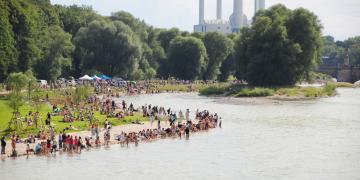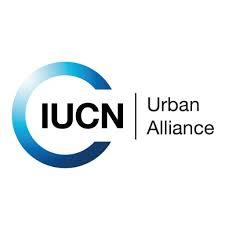
Converting and conserving urban green spaces for educational community gardening
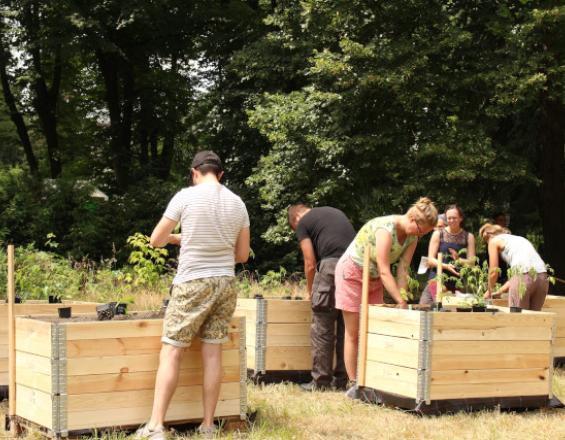
Prinzessinnengarten Kollektiv Berlin is a social-ecological urban agriculture organisation in Berlin. Our goal is to set low-threshold opportunities for environmental education and to develop urban gardens as places for community learning about biodiversity, climate adaption and sustainable living in urban spaces. We transform urban land into publicly accessible green spaces such as community gardens, environmental education spaces for local institutions and urban vegetable fields for the ecological production of food. Our team hosts regular community gardening sessions to enable public citizens to participate in the cultivation of plants, learn about the principles of regenerative agriculture and the importance of biodiversity.
Impacts
Prinzessinnengarten Kollektiv Berlin manages a 7.5 ha publicly accessible green space and operates a community garden where residents can participate in the co-cultivation of land. On-site we offer low threshold opportunities for participation open to everyone regardless of race, sex, age, ability or financial resources and set-up mobile urban gardens in public spaces such as schools, cultural and social facilities. The goal is to create green spaces in the city for people to meet, exchange experiences and participate in the co-creation of healthy green areas.
Focusing on food production—including the hegemonic food production patterns worldwide—in relation to land use, soil degradation and intergenerational justice, we seek to educate people through hands-on regenerative urban agriculture (ecological cultivation of crop plants in the city) in a participatory manner. In open workshops we educate about the issue of food waste and encourage responsible, waste-free consumption through food preservation, storing or cooking with “waste food”. Overall we are providing educational workshops for multiplicators (teachers, youth trainers etc.) to share knowledge and practices about sustainable food production, soil management, material use, waste management and biodiversity.

